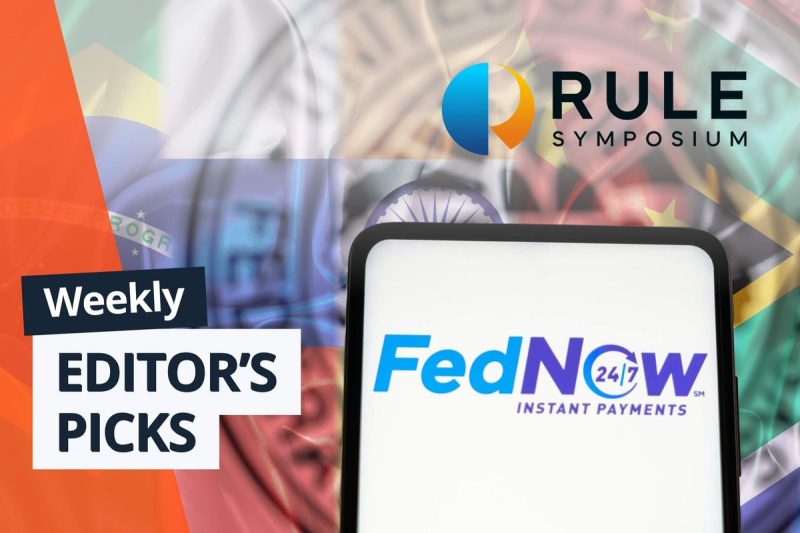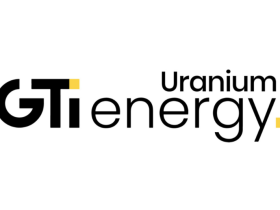Read on to learn what experts were saying about the BRICS’ potential gold-backed currency and the new FedNow system.
Rickards lays out how a gold-backed BRICS currency could work
The first major topic of conversation was the upcoming BRICS Summit, which is set to run from August 22 to 24. There’s been a lot of speculation in recent months about what will happen at this meeting, with questions focused around whether the group will announce a new currency and, if so, whether it will be backed by gold or perhaps another commodity.
I heard a wide range of perspectives on those subjects, from those who think a gold-backed BRICS currency is inevitable to those who believe it’s never going to happen. As we continue to add those conversations to our Rule Symposium playlist on YouTube, I want to share a few takeaways from well-known author Jim Rickards, who definitely falls into the first category. In a keynote presentation, he shared specifics on how a gold-backed BRICS currency could work.
Speaking to an attentive audience, Rickards argued that the world is heading toward the biggest change in the international monetary system since the mid-1970s, although it’s not going to happen right away.
He began by outlining the history of the BRICS, saying that although talk of a new BRICS currency has erupted in the last six months or so, its development actually goes back 17 years. Rickards believes interest has grown since the US put sanctions on Russia, essentially weaponizing the dollar.
‘The world actually could not destroy the dollar, but the US could. And that’s the key point — the US is destroying the dollar, and they’re doing it through sanctions’ — Jim Rickards, Paradigm Press
Giving a breakdown of how he sees a BRICS currency coming to life, Rickards said the value of the BRICS currency’s units are likely to be specified in gold by weight. Importantly though, he doesn’t see this as a new gold standard, or the end of the US dollar or the euro. He specified that the BRICS currency will essentially ‘hitch a free ride on the existing dollar/gold market’ — in other words, if for example a BRICS currency unit is worth one ounce of gold, and the gold price goes to US$3,000, the BRICS currency unit would be worth US$3,000, while the dollar would lose value as measured by the weight of gold.
‘(The BRICS) win by doing nothing,’ Rickards told Rule Symposium attendees. ‘They just do nothing. They let the dollar destroy itself, (and) they let the dollar price of gold go up.’
FedNow system worries Rule Symposium attendees
The second topic that came up often at the Rule Symposium was the US Federal Reserve’s new FedNow instant digital payment system. Although it’s been in the works sine 2021, it just launched on July 20.
It’s a way for US consumers and financial institutions to send and receive funds in real time — in other words, it eliminates the usually days-long waiting period that’s required when making payments or transferring money.
In general, experts at the Rule Symposium see FedNow itself as a positive development, but they’re worried about its implications when it comes to central bank digital currencies. Here’s how Rick Rule explained it:
‘It’s horrifying for me. FedNow is I think a settlement system designed as a foundation for a central bank digital currency, and the idea that my government wants to superimpose a different layer of control on me is something I don’t like. The idea that they have a currency unit that they can cancel, and the cancellable technology is built in there, calls into mind a recent circumstance in Canada where your prime minister objected to a political — the truckers as an example — and retroactively made contributing to them illegal and seized the bank accounts of Canadians. The idea that he wouldn’t have to seize them, but rather press a button and cancel them is terrifying to me’ — Rick Rule, Rule Investment Media
You can watch the full interview with Rule here, and you can see our Rule Symposium YouTube playlist here.
Securities Disclosure: I, Charlotte McLeod, hold no direct investment interest in any company mentioned in this article.
Affiliate Disclosure: InvestingNews.com may earn commission from qualifying purchases or actions made through the links or advertisements on this page.





